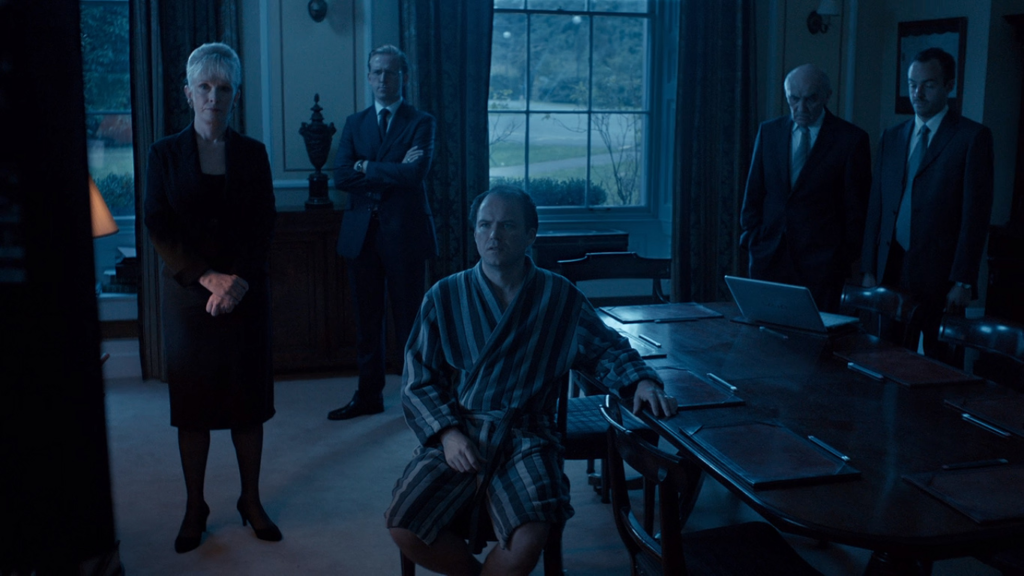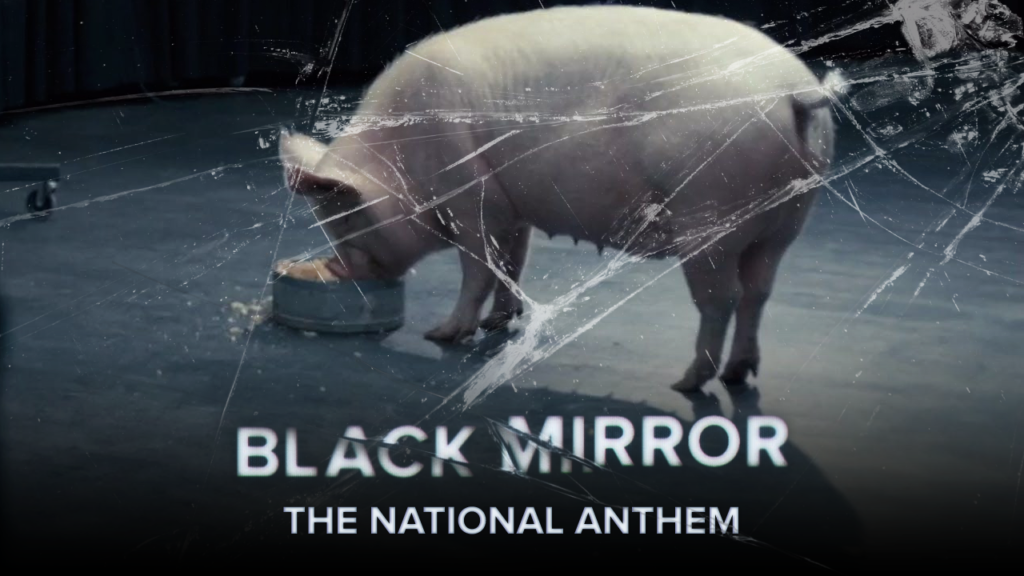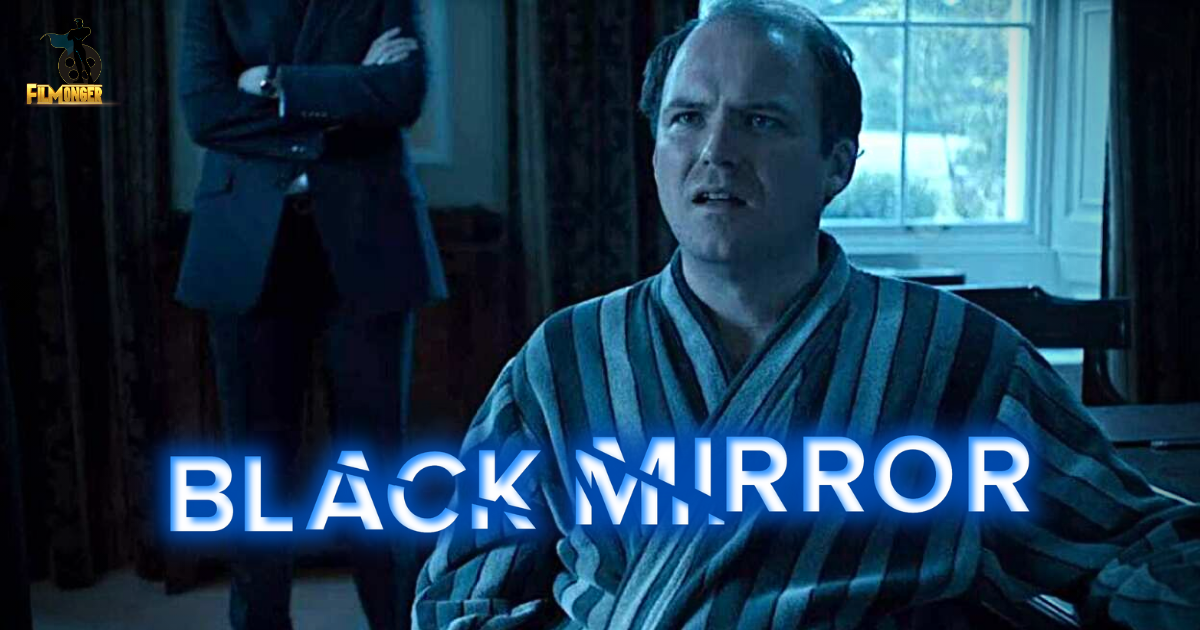In ‘The National Anthem,’ Black Mirror explores violence, morality, and societal fascination, setting the stage for a thought-provoking series.
When Black Mirror first graced the screens on Channel 4 in the UK, its inaugural episode, “The National Anthem,” sent shockwaves through its audience. It thrust the audience into the unsettling world of terrorism, as Princess Susannah found herself abducted, and Prime Minister Michael Callow faced an unthinkable ultimatum—committing an unthinkable act with a pig on live television. Beneath the surface of this grotesque spectacle lay a message about society, one that went beyond the visceral shock factor.
In the grim face of terrorist threats, Callow was tragically coerced into submission, giving birth to one of Black Mirror’s most haunting chapters. The pig incident, abhorred by characters and viewers alike, served as a veil for a deeper and more disconcerting societal commentary.
The Terrifying Power of Violence in Politics
For years, global discussions have revolved around the concepts of democracy and political power. In “The National Anthem,” these themes entwine with politics, art, and rebellion. Despite Prime Minister Callow’s attempts to resist the terrorist’s demands and rescue Princess Susannah, the terrorist resorted to a gruesome tactic. He sent a chilling video to a local news station, showcasing the amputation of the princess’s finger, forcing Callow into the nightmarish act on live TV. This harrowing event left Callow’s wife, Jane, traumatized.
In a shocking twist, the princess was released just half an hour before the scheduled publicized event, emerging unscathed. Later, it was revealed that the terrorist had severed his own finger and taken his life—a macabre means of emphasizing a point while eluding consequences. In this disturbing scenario, the terrorist demonstrated the power of violence in compelling governments to respond to civilian demands, for better or worse.
The terrorists cunningly exploited politicians’ vulnerabilities in hostage situations, undermining their sense of security and control. This portrayal elevated the terrorist to a more chilling antagonist than characters like Mia from “Crocodile” or Kenny from “Shut Up and Dance.” His actions not only unveiled the capriciousness of governments but also exposed a darker truth about humanity as a whole.
The Fragility of Human Morality and Society’s Obsession with Shock

In a poignant critique, “The National Anthem” underscores the unpredictable nature of human morality. When Princess Susannah wandered the streets of London, unnoticed and unharmed, for half an hour, it revealed a disturbing truth: people are drawn to sensational spectacles, regardless of their ethical principles. While the act of witnessing the British Prime Minister’s disgraceful act with the pig was inherently repulsive, the audience remained transfixed, refusing to turn away. This thematic exploration mirrors one of Black Mirror‘s recurring motifs—humanity’s fascination with shock value, evident in reality through reality TV, snuff films, and social media.
Furthermore, the terrorist’s actions spotlighted the superficiality of human morality. In times of normalcy, individuals often uphold an image of moral superiority. Yet, when confronted with a crisis, their moral compass can falter, revealing their darker inclinations. The terrorist’s manipulation showcased how readily people could discard their masks of self-righteousness, unveiling their own depravity. The audience’s willingness to participate in the Prime Minister’s public humiliation by watching the live broadcast contradicted their moral convictions, highlighting the fragility of human ethics in adversity.
The Evolution and Inspirations Behind the Episode

In “Inside Black Mirror,” a book offering behind-the-scenes insights, the production team delves into the creation of “The National Anthem,” shedding light on its origins. Writer and executive producer Charlie Brooker initially envisioned it as a humorous episode, reminiscent of “24” with Jack Bauer facing a controversial act involving a pig. However, storytelling transformed it into something more profound.
Both Charlie Brooker and Annabelle Jones drew inspiration from the reality show “I’m a Celebrity… Get Me Out of Here!”—a program where celebrities endure extreme challenges in a jungle. These challenges often include daunting eating trials, such as consuming various animal genitals.
“The National Anthem” extends this concept of humiliating challenges, highlighting the public’s fascination with humiliation, as executive producer Annabelle Jones noted. The episode underscores society’s tendency to celebrate those who subject themselves to humiliation for public entertainment, a theme central to the narrative.
A Pioneering Entry That Set the Tone for Black Mirror

In hindsight, “The National Anthem” left an indelible mark as Black Mirror’s audacious starting point. It boasts a perfect 100% approval rating on Rotten Tomatoes, based on 19 reviews. Critics succinctly characterize the episode as “a scalding satire and a nightmare of burgeoning technology gone awry,” serving as a perfect introduction to the series’ exploration of society’s imperfections through a technological lens.
Now, viewers can delve into the depths of Black Mirror Season 6 on Netflix, continuing their journey through the intriguing and thought-provoking world of social commentary.
